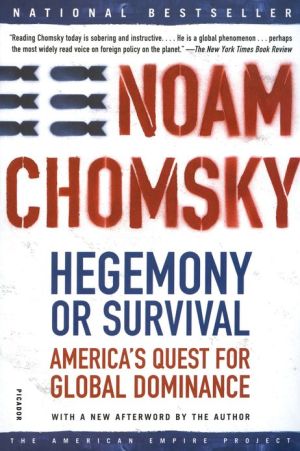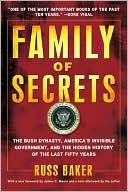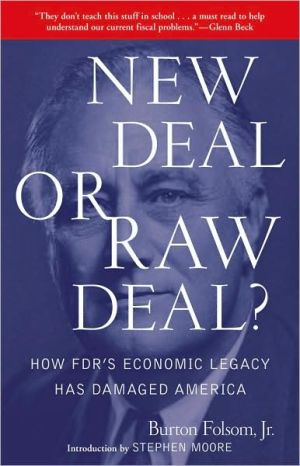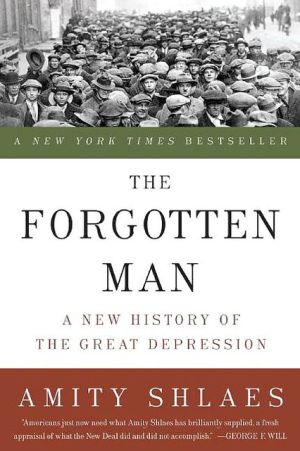Hegemony or Survival: America's Quest for Global Dominance (The American Empire Project)
"Reading Chomsky today is sobering and instructive . . . He is a global phenomenon . . . perhaps the most widely read voice on foreign policy on the planet." -The New York Times Book Review\ An immediate national bestseller, Hegemony or Survival demonstrates how, for more than half a century the United States has been pursuing a grand imperial strategy with the aim of staking out the globe. Our leaders have shown themselves willing-as in the Cuban missile crisis-to follow the dream of...
Search in google:
"Reading Chomsky today is sobering and instructive . . . He is a global phenomenon . . . perhaps the most widely read voice on foreign policy on the planet." -The New York Times Book ReviewAn immediate national bestseller, Hegemony or Survival demonstrates how, for more than half a century the United States has been pursuing a grand imperial strategy with the aim of staking out the globe. Our leaders have shown themselves willing-as in the Cuban missile crisis-to follow the dream of dominance no matter how high the risks. World-renowned intellectual Noam Chomsky investigates how we came to this perilous moment and why our rulers are willing to jeopardize the future of our species.With the striking logic that is his trademark, Chomsky tracks the U.S. government's aggressive pursuit of "full spectrum dominance" and vividly lays out how the most recent manifestations of the politics of global control-from unilateralism to the dismantling of international agreements to state terrorism-cohere in a drive for hegemony that ultimately threatens our existence. Lucidly written, thoroughly documented, and featuring a new afterword by the author, Hegemony or Survival is a definitive statement from one of today's most influential thinkers. The New York Times … reading Chomsky today is sobering and instructive for two reasons. First, his critiques have come to influence and reflect mainstream opinion elsewhere in the world; and second, the radicalism of the Bush administration has laid bare many of the structural defects in American foreign policy, defects that Chomsky has long assailed. — Samantha Power
We are entering a period of human history that may provide an answer to the question of whether there is intelligent life on earth, at least in the sense of "intelligence" that might be admired by a sensible extraterrestrial observer. The most hopeful prospect is that the question will not be answered: for any definitive response can only conclude that humans are a kind of "biological error," using their allotted 100,000 years—the life expectancy of a species—to destroy themselves and, in the process, much else. Humans have surely developed the capacity to do just that: our hypothetical extraterrestrial observer might argue that they have demonstrated that destructiveness throughout their history, and dramatically so in the past few hundred years—with an assault on biological diversity, on the environment that sustains life, and, with cold and calculated savagery, on each other as well.
1Priorities and prospects12Imperial grand strategy113The new era of enlightenment514Dangerous times735The Iraq connection1096Dilemmas of dominance1457Cauldron of animosities1578Terrorism and justice : some useful truisms1879A passing nightmare?217
\ From Barnes & NobleThe Barnes & Noble Review\ In this important addition to the literature of public policy, intellectual activist Noam Chomsky presents a scrupulously researched critique of America's "imperial grand strategy" -- a quest for dominance at any cost that not only has cast us in the role of a rogue superpower but also jeopardizes the very survival of humanity. Examining the roots of this post-WWII version of Manifest Destiny, Chomsky combs through half a century of American history for vivid examples of military aggression cloaked in the sheep's clothing of "self-defense" (Cuba, Vietnam), "preventive warfare" (Granada, Nicaragua), "humanitarian intervention" (Kosovo, East Timor), and "war on terrorism" (Iraq). \ Chomsky argues that the Washington propaganda machine offers up a spin cycle of patriotic bromides designed to mask the true, self-serving motives of our government. With this as his foundation, he exposes the tradition of dominant elitism that has motivated American presidents from Roosevelt and Kennedy to Reagan and the Bushes. In case after case, he shows how policy makers have ignored public opinion and run roughshod over international law -- thereby perpetrating terrorist acts as ruthless as those they oppose. Chomsky uses the 2003 invasion of Iraq as a stunning example of how the grand imperial strategy has backfired. Far from eliminating the threat of terrorism, the war against Saddam Hussein has enhanced terrorist activity, as potential targets of U.S. aggression begin to see weapons of mass destruction as the only deterrent to American intervention. Clearly, Chomsky believes the stakes in this dangerous game of global hegemony have never been higher. Reading his thoroughly researched, copiously footnoted, and always engaging analysis, it is difficult not to agree. Anne Markowski\ \ \ \ \ \ From the Publisher"If, for reasons of chance, or circumstance (or sloth), you have to pick just one book on the subject of the American Empire, I'd say pick this one. It's the Full Monty. It's Chomsky at his best. Hegemony or Survival is necessary reading." \ -Arundhati Roy\ "Reading Chomsky today is sobering and instructive."—Samantha Power, The New York Times "Highly readable...cogent and provocative."—Publishers Weekly\ \ \ \ The New York Times… reading Chomsky today is sobering and instructive for two reasons. First, his critiques have come to influence and reflect mainstream opinion elsewhere in the world; and second, the radicalism of the Bush administration has laid bare many of the structural defects in American foreign policy, defects that Chomsky has long assailed. — Samantha Power\ \ \ \ \ Publishers WeeklyIn this highly readable, heavily footnoted critique of American foreign policy from the late 1950s to the present, Chomsky (whose 9-11 was a bestseller last year) argues that current U.S. policies in Afghanistan and Iraq are not a specific response to September 11, but simply the continuation of a consistent half-century of foreign policy-an "imperial grand strategy"-in which the United States has attempted to "maintain its hegemony through the threat or use of military force." Such an analysis is bound to be met with skepticism or antagonism in post-September 11 America, but Chomsky builds his arguments carefully, substantiates claims with appropriate documentation and answers expected counterclaims. Chomsky is also deeply critical of inconsistency in making the charge of "terrorism." Using the official U.S. legal code definition of terrorism, he argues that it is an exact description of U.S. foreign policy (especially regarding Cuba, Central America, Vietnam and much of the Middle East), although the term is rarely used in this way in the U.S. media, he notes, even when the World Court in 1986 condemned Washington for "unlawful use of force" ("international terrorism, in lay terms" Chomsky argues) in Nicaragua. Claiming that the U.S. is a rogue nation in its foreign policies and its "contempt for international law," Chomsky brings together many themes he has mined in the past, making this cogent and provocative book an important addition to an ongoing public discussion about U.S. policy. (Nov.) FYI: This is the first title in the new American Empire Project, which the publisher describes as "provocative and critical books that will focus on the increasingly imperial cast of America's government and policy." Copyright 2003 Reed Business Information.\ \ \ \ \ Library JournalChomsky bemoans America's carrying imperialist tendencies into space. Copyright 2003 Reed Business Information.\ \








